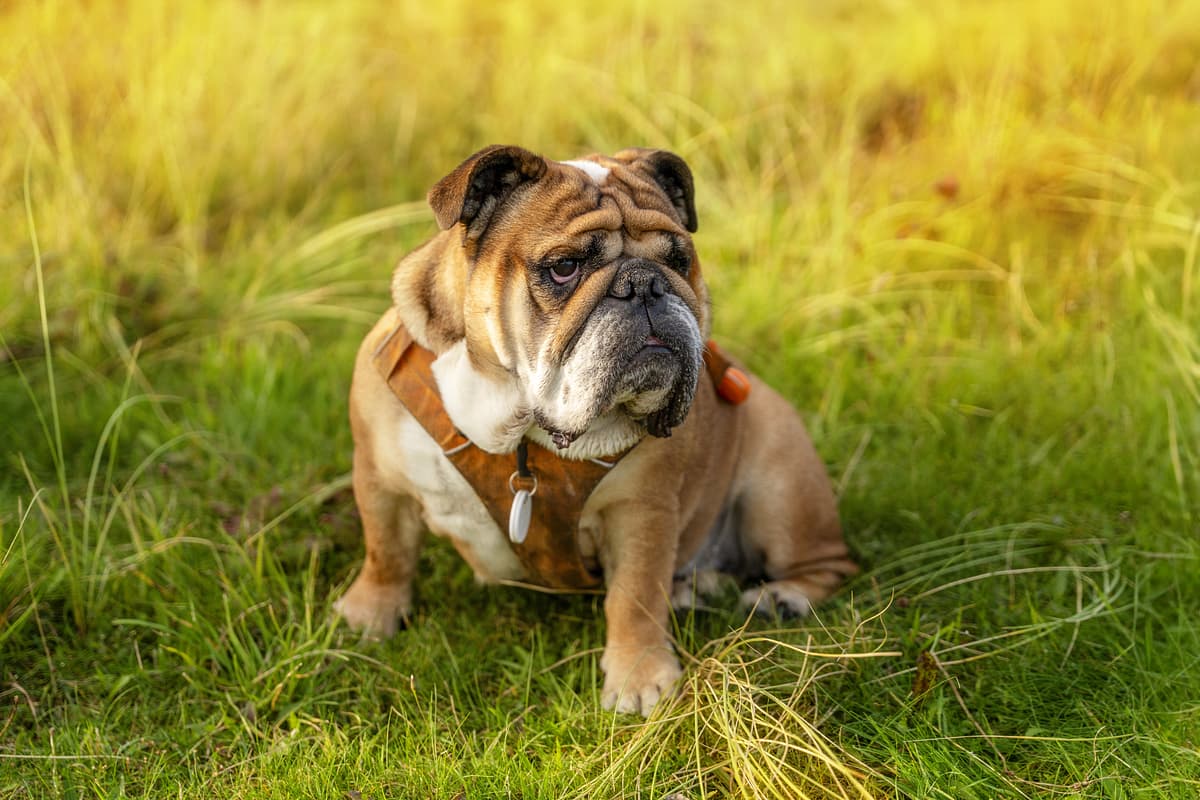Dachshund vs English Bulldog
Discover the differences between Dachshund and English Bulldog to make the best choice for your situation.
Try different breeds

Dachshund
Lively, clever, and bold, the Dachshund stands out with its unique long body and spirited personality. Loyal and playful, this breed thrives as a devoted family companion.

English Bulldog
Stocky, courageous, and affectionate, this breed charms with its wrinkled face and calm nature. Loyal and gentle, it thrives as a loving family companion.
Quick comparison
Small
7–15 kg
Smooth or wirehaired, dense
12–16 years
7–13 kg
Moderately active
Medium
23–25 kg
Short, smooth
8–10 years
18–23 kg
Low activity needs
Personality & behavior
Compare the personality traits and behavioral characteristics of both breeds.
Dachshund
Generally sociable, bonds well with family
Quick learner, responds well to training
Moderate activity, enjoys walks and play
Likes games, often entertains itself
Adjusts fairly well to new environments
English Bulldog
Affectionate and gentle with family and children
Learns basic commands with some patience
Prefers lounging over vigorous physical activity
Enjoys play but tires fairly quickly
Adjusts well to most living environments
Care needs
Exercise, grooming, and daily care requirements
Dachshund
Intervertebral disc disease, obesity
English Bulldog
Brachycephalic syndrome, skin fold infections
Suitability
How well each breed fits different living situations and families
Dachshund
Good option
Generally easy to train but may be stubborn at times
Excellent fit
Small size and moderate exercise needs suit apartment spaces
Not ideal
May tire quickly and is prone to back injuries with intense activity
Use caution
Can be snappy or impatient if mishandled by young children
Mixed results
May get along with pets but has a strong prey drive
Prone to anxiety
Dislikes being left alone and may develop separation anxiety
English Bulldog
Good option
Easygoing, low-maintenance nature suits owners with limited dog experience
Excellent fit
Moderate exercise needs and calm demeanor work well in small living spaces
Not ideal
Low stamina and breathing issues make them unsuited for high-activity lifestyles
Very suitable
Gentle, patient, and tolerant with young children when properly socialized
Usually compatible
Generally sociable but may need guidance with other pets, especially dogs
Not recommended
They struggle with long periods alone and are prone to separation anxiety
Breed strengths
What each breed excels at and their best qualities
Dachshund
- Loyal and devoted to family
- Alert and makes a good watchdog
- Adaptable to apartment living
- Playful and entertaining personality
- Low grooming needs for smooth coats
English Bulldog
- Affectionate with family members
- Generally good with children
- Low exercise requirements
- Minimal grooming needs
- Adaptable to apartment living
Challenges & considerations
Potential challenges and considerations for each breed
Dachshund
- Prone to back injuries due to long spine
- Can be stubborn during training
- May bark excessively if not managed
- Requires careful handling to prevent injury
- Can be wary of strangers and other dogs
English Bulldog
- Prone to respiratory problems
- High risk of overheating
- Susceptible to skin infections
- Can be stubborn during training
- Tends to drool frequently
Ready to choose your perfect breed?
Learn more about each breed or compare other breeds to find the perfect match for your lifestyle.
Discover more helpful tools
Make use of our other free tools to get the most out of your pet experience
